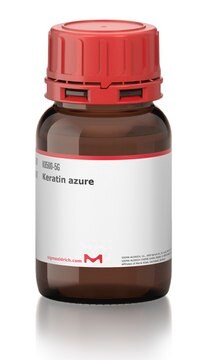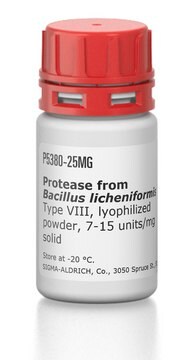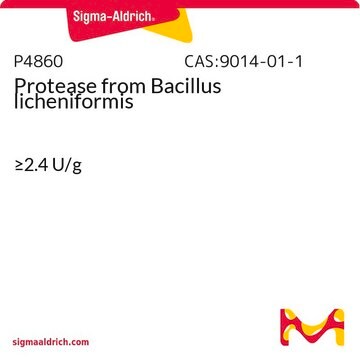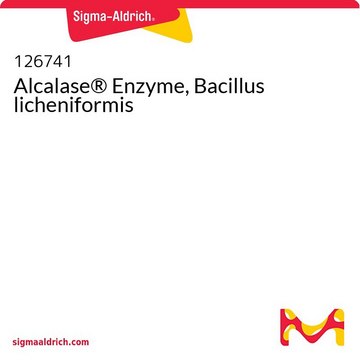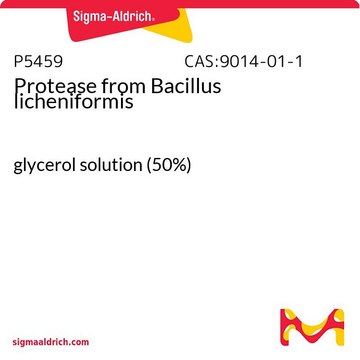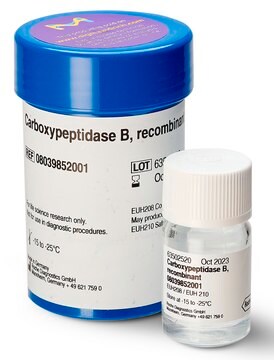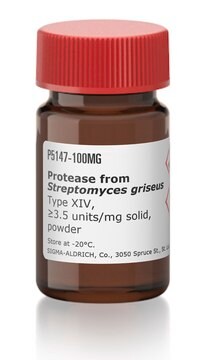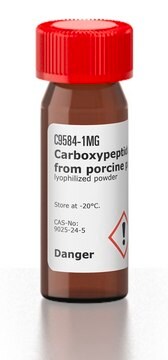K4519
Keratinase
lyophilized powder
Sinónimos:
Keratinase from Bacillus licheniformis, KerA, Keratinolytic protease
About This Item
Productos recomendados
recombinant
expressed in E. coli BL21
Quality Level
form
lyophilized powder
specific activity
300-1000 units/mg protein
mol wt
~39 kDa
pH range
5.5-12.5(optimum activity is seen at pH 12.5)
pI
8.73
storage temp.
−20°C
General description
Application
Biochem/physiol Actions
Physical properties
Unit Definition
Preparation Note
Substrates
Other Notes
Legal Information
signalword
Warning
hcodes
Hazard Classifications
Acute Tox. 4 Oral - Eye Irrit. 2 - Skin Irrit. 2 - STOT SE 3
target_organs
Respiratory system
Storage Class
11 - Combustible Solids
wgk_germany
WGK 3
Certificados de análisis (COA)
Busque Certificados de análisis (COA) introduciendo el número de lote del producto. Los números de lote se encuentran en la etiqueta del producto después de las palabras «Lot» o «Batch»
¿Ya tiene este producto?
Encuentre la documentación para los productos que ha comprado recientemente en la Biblioteca de documentos.
Los clientes también vieron
Nuestro equipo de científicos tiene experiencia en todas las áreas de investigación: Ciencias de la vida, Ciencia de los materiales, Síntesis química, Cromatografía, Analítica y muchas otras.
Póngase en contacto con el Servicio técnico